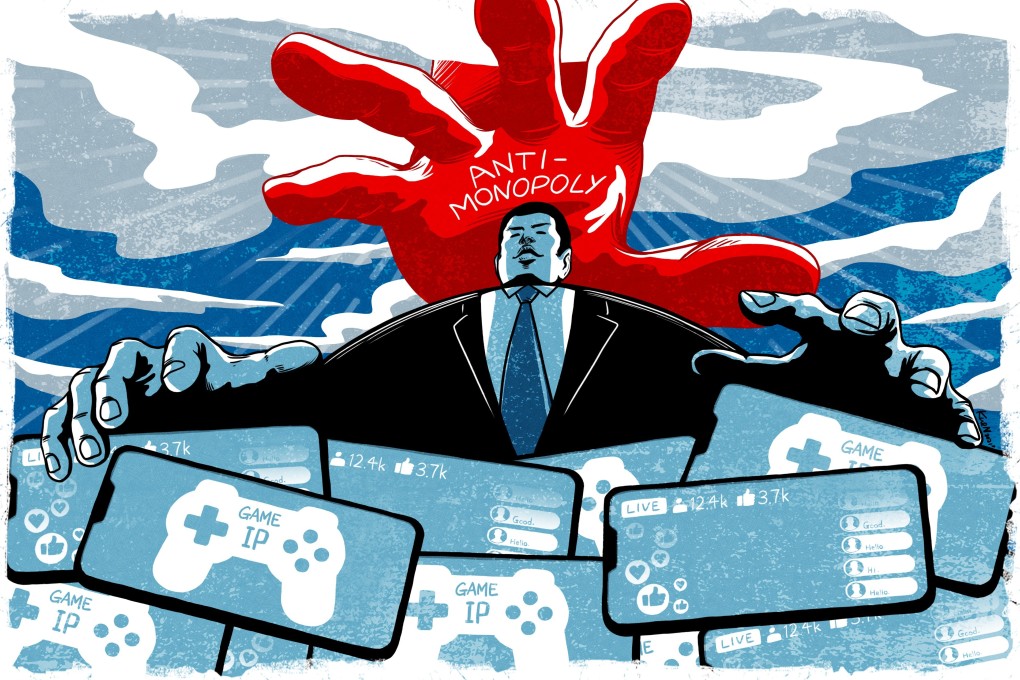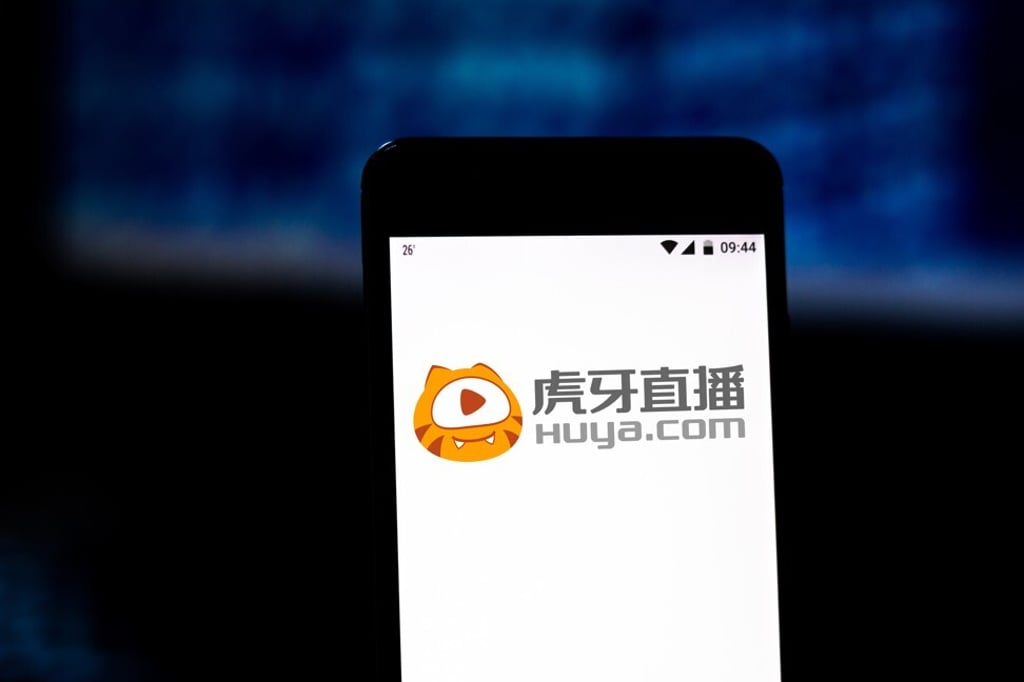Advertisement
China antitrust: inquiry into the merger of video game streamers Huya, DouYu puts spotlight on Tencent
- Tencent owns a 37 per cent stake in Huya and 38 per cent of DouYu
- The merger would create a US$10 billion video game-streaming behemoth, with almost 300 million mobile monthly active users
Reading Time:6 minutes
Why you can trust SCMP
1

In the second of a four-part series on China’s antitrust investigations into the nation’s internet and technology sectors, Josh Ye looks at the latest development in the world’s largest video gaming market. Part three covering literature and part four on ride-hailing will be published on June 12 and June 26.
Advertisement
When Huya and DouYu, China’s two biggest video game live-streaming platforms, agreed to merge last October, the plan was to create a US$10 billion behemoth, with almost 300 million mobile monthly active users, worthy of taking on Amazon.com’s streaming service Twitch.
The merger, which was expected to wrap up early this year, hit a snag amid China’s ongoing antitrust crackdown led by the State Administration for Market Regulation (SAMR), which is reviewing the deal. At issue is the concentration in market power that merger would give to Tencent Holdings, which runs the world’s largest video gaming business by revenue and China’s biggest social media platform WeChat.
Shenzhen-based Tencent – which had a 43 per cent share of China’s video gaming market in 2020, according to market research firm Niko Partners – owns a 37 per cent stake in Huya and 38 per cent of DouYu. It would own about 67 per cent of the merged enterprise, while adding more users to its ecosystem in the world’s largest video games market.
“The merger will greatly diminish competition in the video game live-streaming market in terms of creating a horizontal monopoly,” said You Yunting, a senior partner at Shanghai DeBund Law Offices, who is not involved in the transaction. “From the view of a vertical monopoly, the merger will unfairly give Tencent the advantage from operating online games to live-streaming them.”
Advertisement

China’s antitrust crackdown, which began in earnest last November with inquiries into the business practices of the world’s largest financial technology enterprise, is widely speculated to be shifting its focus to online music and video gaming, sectors in which Tencent has significant market share.

Advertisement